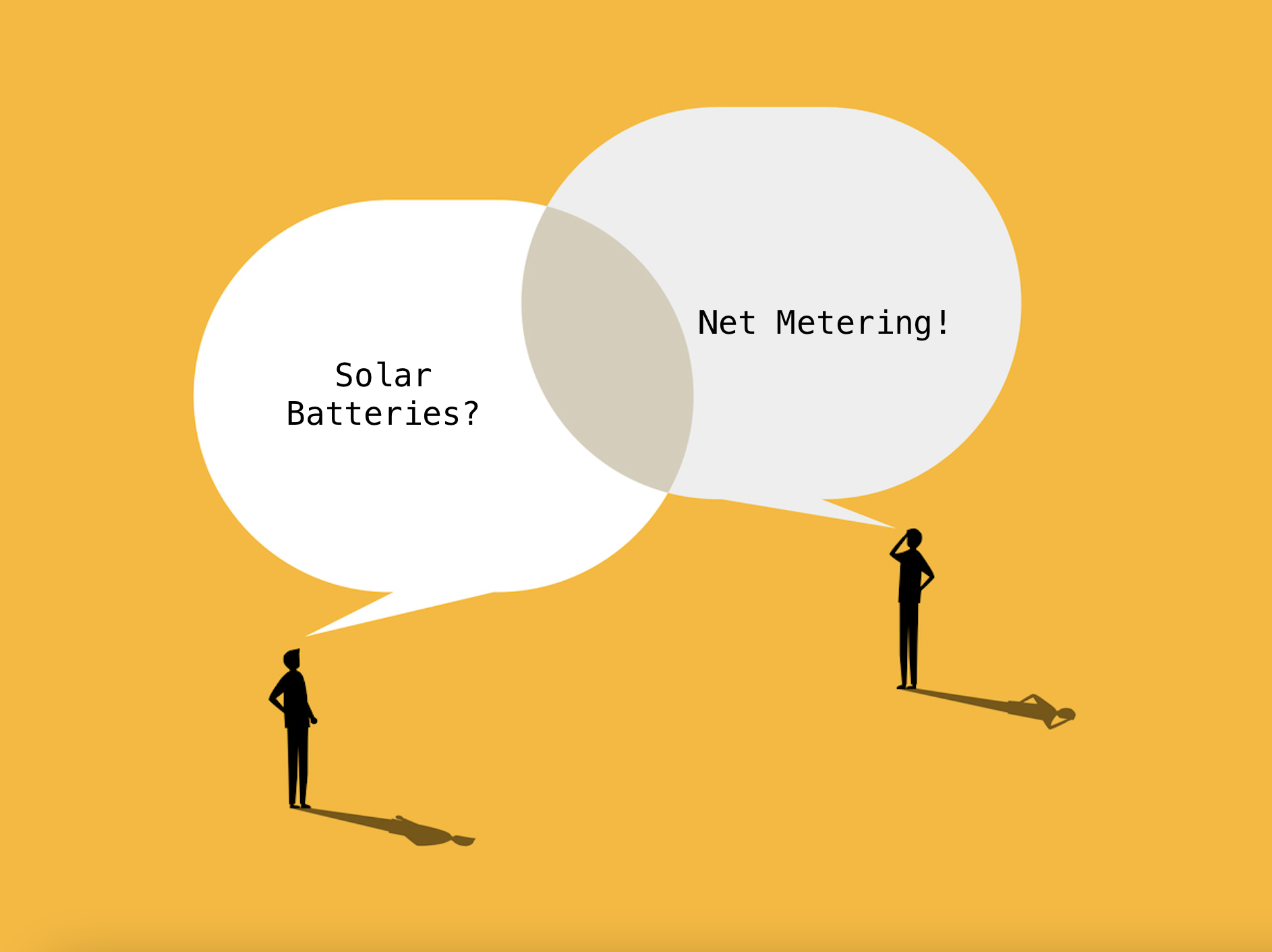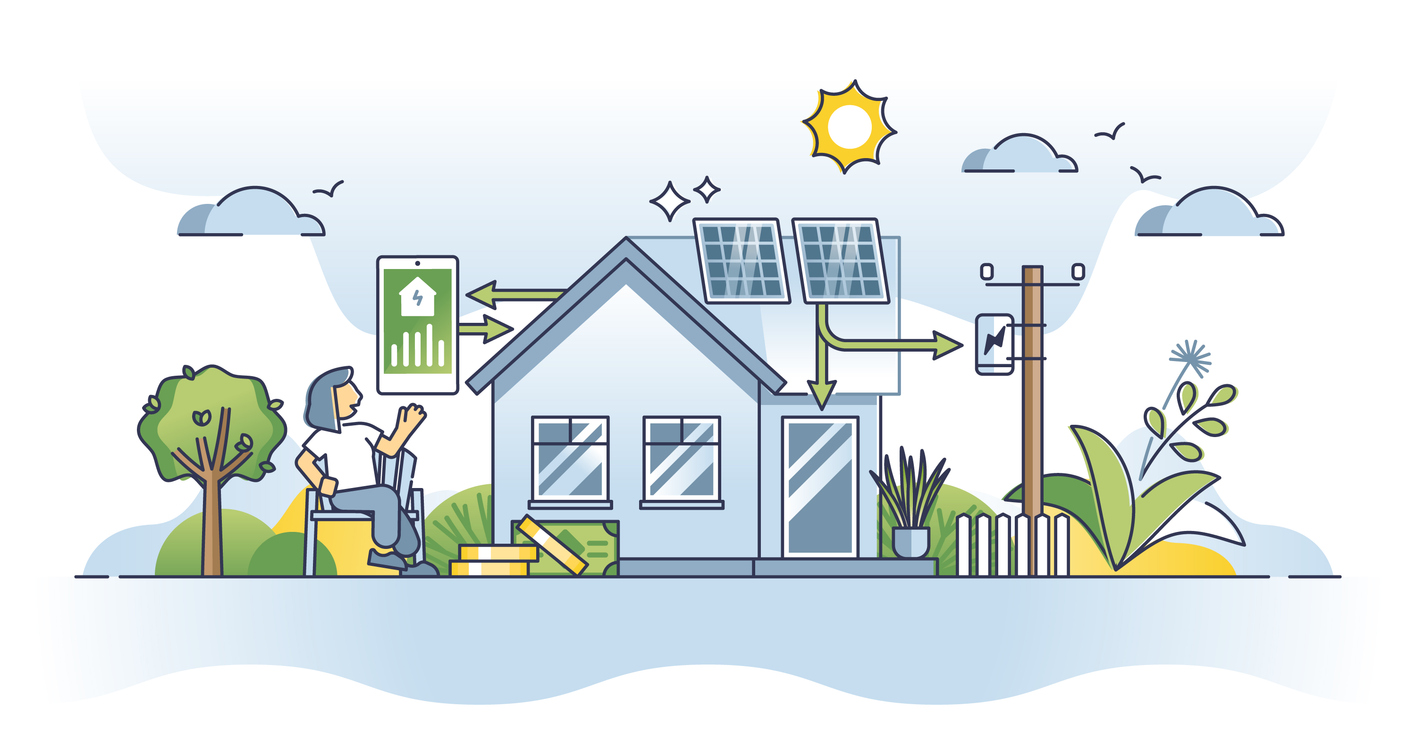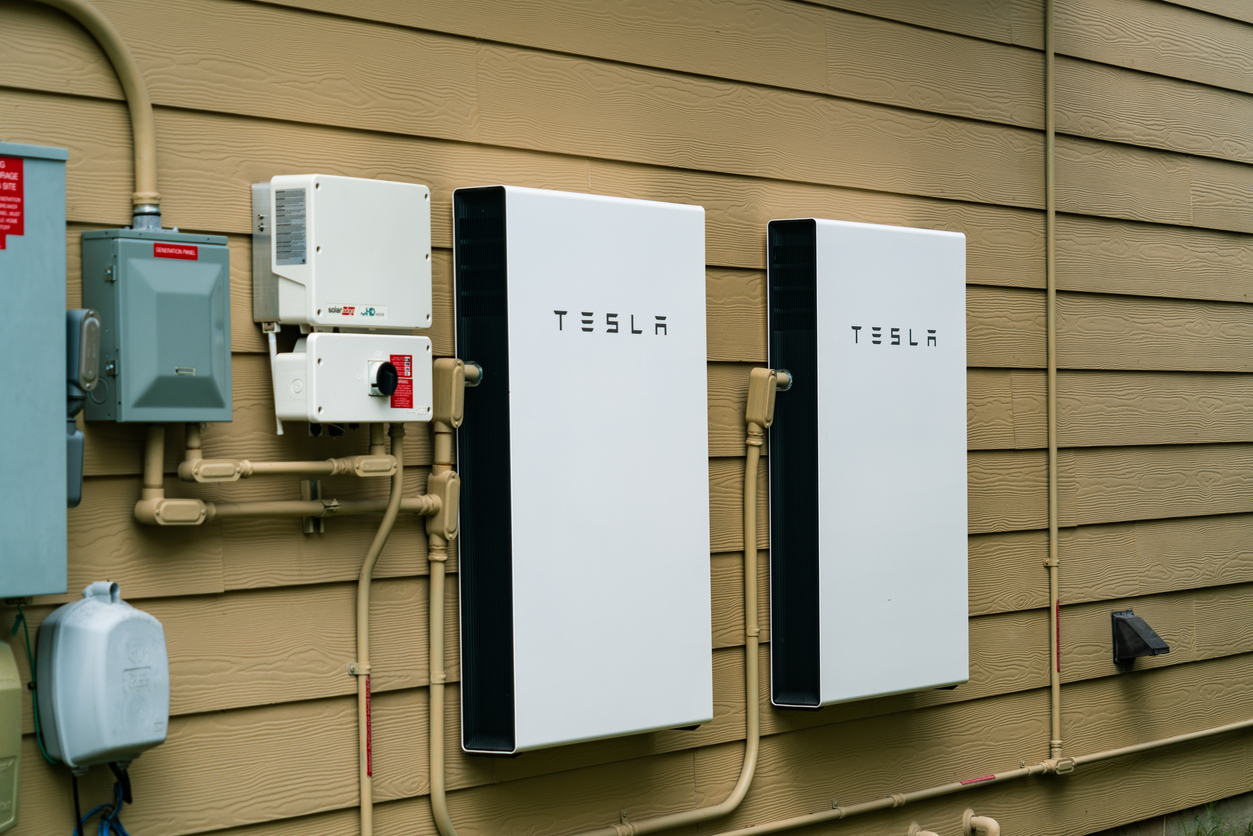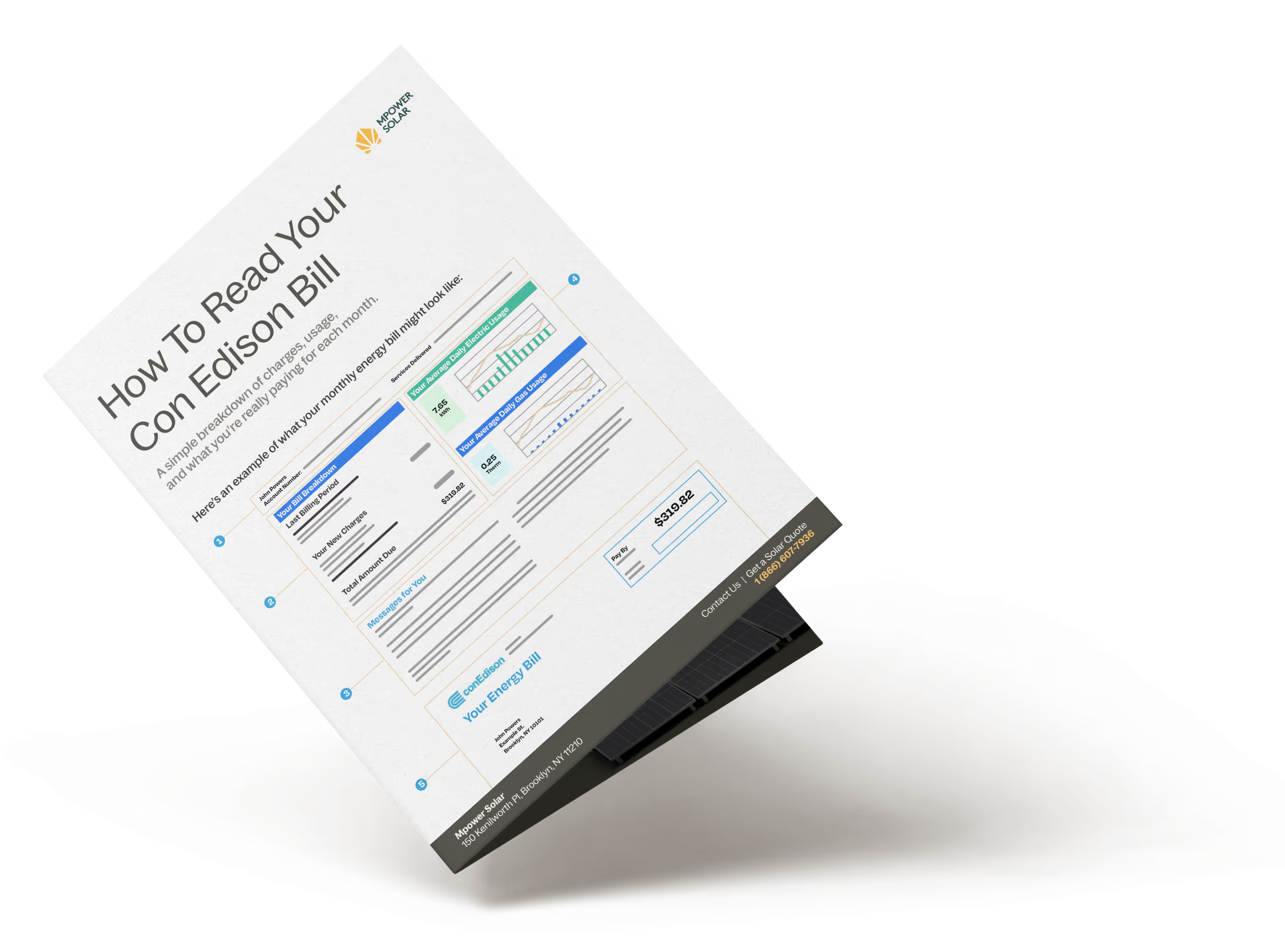Let's get you powered up
Solar incentives in NYC won’t last forever—now’s the time to make the switch. Reach out for a quick, custom quote and see how much you could save.

Imagine your electric meter running backward. You’re at work, the sun is shining, and while you’re not home, your solar panels are generating clean energy. Your meter literally spins backward, building up credits toward your next electric bill. Sounds too good to be true? That’s net metering, and it’s one of the best-kept secrets in New York City solar energy.
If you’ve been researching solar batteries vs. net metering, you’ve probably seen plenty of buzz about “energy storage.” But in NYC, it’s not quite that simple. Let’s break it down and show you why net metering is the main option for homeowners wanting to go solar in the city.
Net metering is a billing system that lets you earn credits for the extra solar energy your panels produce. When your solar system generates more electricity than your home uses, that excess power flows back into the grid, and your electric meter actually spins backward.
Later—say at night or on a cloudy day—you use electricity again. Instead of paying for it, you “cash in” those stored credits. You’re only billed for your net energy use, meaning the difference between what you send and what you take from the grid.
In NYC, this system is managed through what’s called the Value of Distributed Energy Resources (VDER) program. It works similarly to traditional net metering but values your solar credits based on time, location, and grid demand. It may sound a bit complicated but in practice it’s very simple—net metering is how New Yorkers connect to the grid, save on energy costs, and give back excess energy to their neighbors. Learn more about how it all works from Con Edison’s official guide to solar energy installation.


A net meter is a special bi-directional electric meter that records two flows of energy: How much electricity you draw from the grid and how much solar power your home sends back.
It’s like a savings account for energy:
When your panels aren’t producing enough electricity (like at night or during a storm), your system automatically draws from the credits you’ve built up. If you generate 500 kilowatt-hours of solar power one month, for example, but only use 400, the remaining 100 get rolled over to your next bill as a credit.
That means your home is powered year-round, even when the weather doesn’t cooperate. You’re still connected to NYC’s energy grid—so you’ll never lose power when the sun isn’t shining. Check out our guide to solar panels in winter to learn more about keeping snow off your panels (and why they actually can perform better when it’s cold).
Your solar installer and utility provider handle the installation and coordination of the physical net meter. For NYC homeowners, Mpower Solar supports you from start to finish—working with the utility company to ensure the system gets up and running.

You’ve probably heard about solar battery systems—those sleek-looking boxes that store your extra power right at home. When your panels generate excess electricity, that energy is then stored in your battery system for later use.
In many states, solar batteries are an option. But in New York City, things work differently.
Because of local fire codes, building density, and safety regulations, most NYC homeowners aren’t able to install traditional lithium-ion solar batteries (like the Tesla Powerwall). Instead, net metering acts as your virtual battery—storing energy in the grid instead of your garage.
And cost is another factor: according to MarketWatch’s solar battery guide, a single-home battery installation can run between $12,000 and $22,000. For most NYC residents, net metering delivers the same benefit but without the price tag, safety issues, and space constraints.
Think of your electric meter like a bank account for sunlight. During the day, you deposit solar energy. At night, you withdraw what you need. Your utility keeps track, and you’re credited for the extra power you give back.
With net metering in New York City, you:
That’s why net metering isn’t just a billing system but more like a partnership between your home and New York’s energy grid. Together, you’re helping build a cleaner, smarter, and more sustainable city.
Ready to see how much you can save?

Like what you read? Follow Mpower Solar for more solar energy tips:
Instagram | Facebook | YouTube
Inside you'll discover:

Solar incentives in NYC won’t last forever—now’s the time to make the switch. Reach out for a quick, custom quote and see how much you could save.